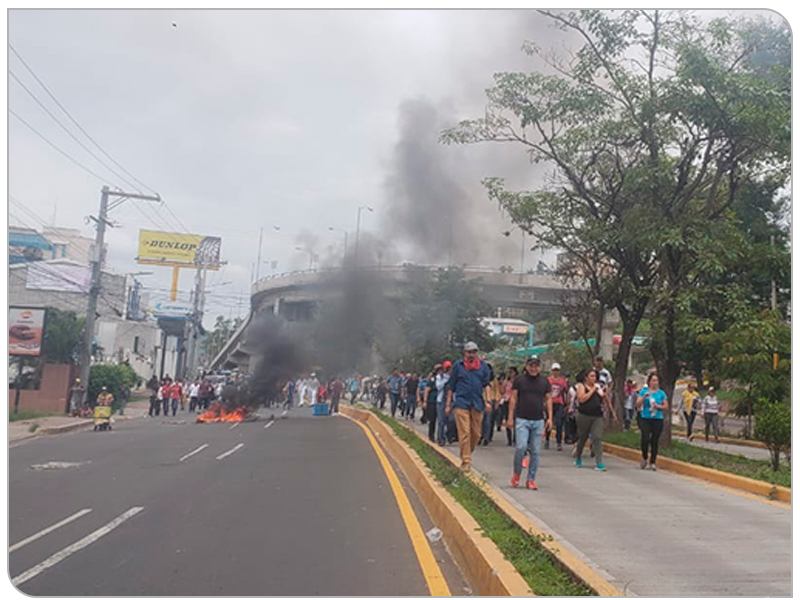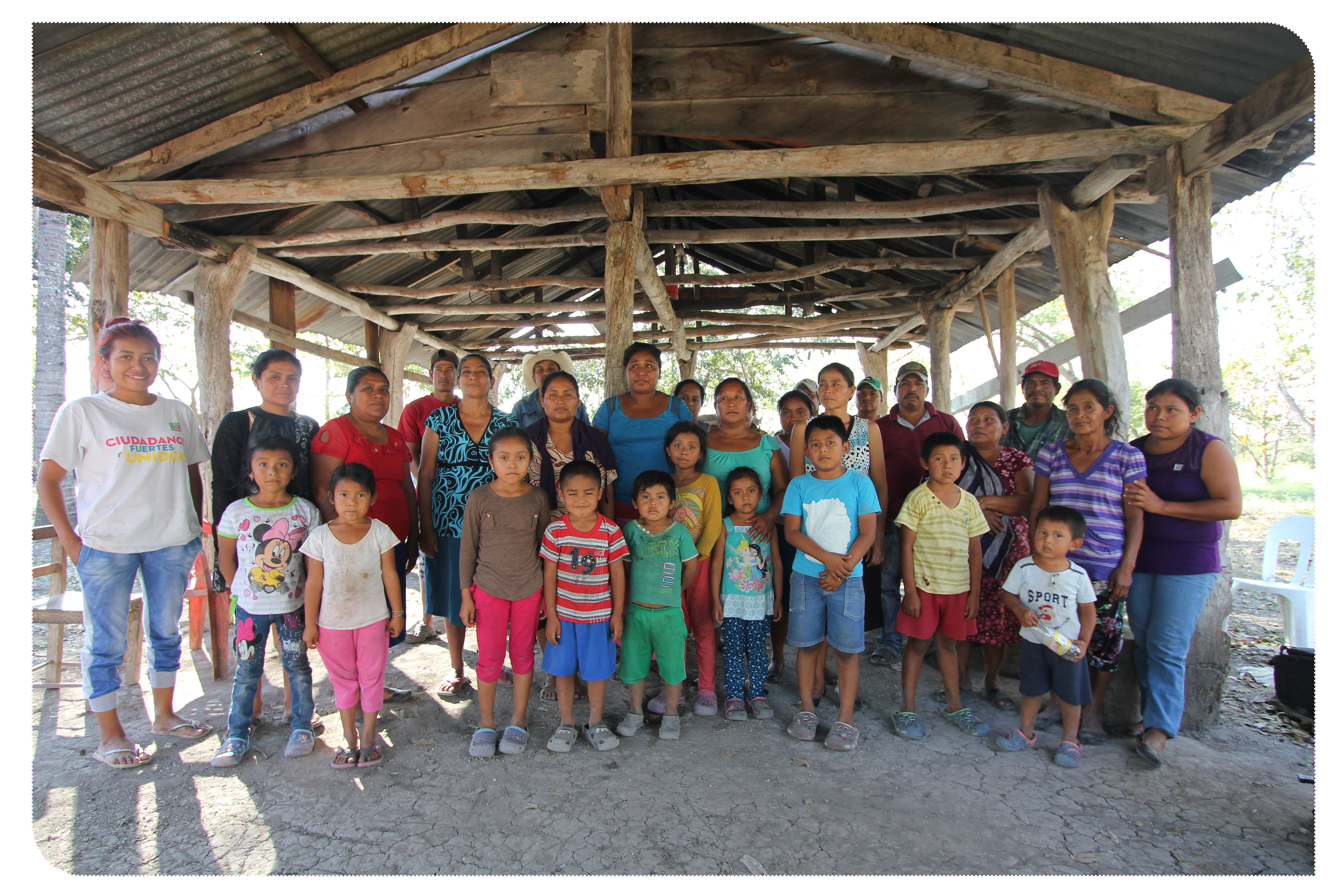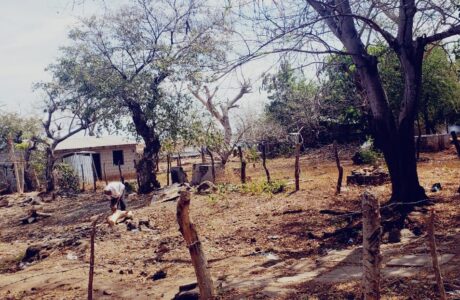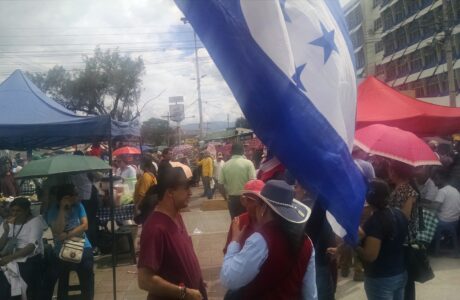VIOLENCE AND LAND DISPOSSESSION PROJECT
PROJECT COMPLETION
This project has now been completed. See concluding statement under section Research Agenda and Outcomes. This research on violence and land dispossession continues with the new project “Land Violence, Security and Development in Honduras, Guatemala, and Mexico”, funded by the Social Sciences and Humanities Research Council of Canada (2021)
OVERVIEW
Today the two most pressing issues faced by the majority of the populations across the Global South are poverty and violence/insecurity. This project seeks to contribute to a fuller understanding of the driving forces behind these problems by focusing on two global phenomena of great significance to human security, development, and peace: land-grabbing and the rise of hybrid forms of organized violence. There is a mounting evidence of a global trend characterized by violence and repression against land and environmental defenders in the context of expanding agroindustries, mining, and infrastructure projects. Between 2015 and 2017 the number of people killed annually for taking a stand against land-grabbing and environmental destruction doubled, reaching an average of 4 activists murdered weekly. The expression of this trend is particularly acute in Latin America. Since 2015 Latin America has been consistently the most dangerous region for environmental and land-rights defenders In 2016, more than 60 percent of defender deaths in the world took place here even though the region represents just over 8 percent of the world’s population. Despite this reality, almost exclusively the problems of land-grabbing and violence have been examined separately by different fields of literature from different disciplines – on one side international development and agrarian studies and on the other side scholarship on violence across the discipline of criminology, political science, and conflict and security studies.


Transcending divisions between these different fields, the project Violence and Land Dispossession examines the relationship between state /parastatal violence and the dispossession of rural populations from their land in the countries of Mexico, Honduras, Guatemala, and El Salvador. The central objective is to discover the role and various alliances of state and non-state armed actors in processes of resource appropriation, dispossession as well as repression and disarticulation of movements of resistance. For this project, Dr. Hristov is leading an international team consisting of three collaborators (Dina Meza-Honduras, Isabel Solis-Guatemala, Karina Guardado-El Salvador), four research assistants (Canada, Spain, and Mexico), and the documentary filmmaker Benjamin Cornejo. The research includes review of academic and non-academic literature, examination of primary documents as well as semi-structured interviews and focus groups in the countries under consideration. The project has been funded through the Insight Development Grant from the Social Sciences and Humanities Research Council of Canada (SSHRC) and the Hampton Grant from the University of British Columbia (UBC).
More than 200 land activists slain last year, watchdog finds
2 Excell, C., & Rodriquez, A. (2018, Feburary 26). 4 environmental activists are murdered every week. A new agreement could help in Latin America and the Caribbean. World Resources Institute. Retrieved from:4 Environmental Activists Are Murdered Every Week.
3 More on the concept of pro-capitalist violence can be found in the forthcoming publication: Hristov, J. Pro-capitalist Violence and Globalization: Lessons from Latin America. In Hosseini, H., Gills, B.K., and Goodman, J.(Eds.). The Routledge Handbook of Transformative Globalization Studies.PARTICIPATORY RESEARCH METHODOLOGIES
The project “Violence and Land Dispossession in Central America and Mexico” adopts a participatory methodology model which takes as a starting point the needs of communities affected by violence and tries to address these at every stage of the knowledge creation process including, research design, fieldwork, data analysis, and knowledge dissemination while promoting a horizontal relationship between academics and participants. To this end, one of the intended outcomes of the project is the production of a documentary entitled “Land Wars, Dispossession and Resistance in Latin America”. Furthermore, the project has been used as a platform for facilitating a South-South solidarity by creating an opportunity for communication and exchange between two land-rights movements – from the Aguan region of Honduras and Chiapas, Mexico, whose members have been facing violence related to land disputes, land occupations, forced evictions, and abuses by state and non-state forces in their respective countries.
ENGAGEMENT WITH GOVERNMENT AND PRIVATE SECTOR STAKEHOLDERS
In addition to scholarly contributions, the intended outcomes of the project “Violence and Land Dispossession in Central America and Mexico” include:
1) informing policy-makers, governments and the private sector in Canada and the countries under investigation; and
2) proposing policies and possible kinds of economic linkages with these countries that can contribute to reducing violence
Entrevista a Bartolo Fuentes. Bartolo Fuentes es Periodista y Ex-Diputado hondureño quién fue apresado en Guatemala cuando acompañaba una caravan de migrantes hondureños. Bartolo fue deportado a Honduras el 19 de octubre de 2018. Tanto el gobierno hondureño como el estadounidense lo acusan de ser el organizador de tales caravanas. Bartolo nos explica los detalles la experiencia sufrida en Guatemala y las razones de la gente para dejar su país en grupos masivos. Esta entrevista se realizó el 20 de octubre de 2018. Este documental ha sido producido como parte del proyecto “Violencia y Despojo de la Tierra en Centro América y México” de British Columbia University en Kelowna, Canadá.
Category Posts
Talk “Research in Support of Emancipatory Agendas: the Questions and Challenges”
On November 18 Dr. Jasmin Hristov gave the talk “Research in Support of Emancipatory Agendas: the Questions and Challenges” at
Presentation on Land Dispossession and Sexual Violence
Presentation on Land Dispossession and Sexual Violence On October 23, 2018, Jasmin Hristov gave a presentation entitled “Land-owners, Owners of Women:
Call for Papers CSA 2019, deadline Jan 28, 2019
The Sociology of Development Research Cluster of the Canadian Sociological Association invites submissions to the following sessions for the CSA


